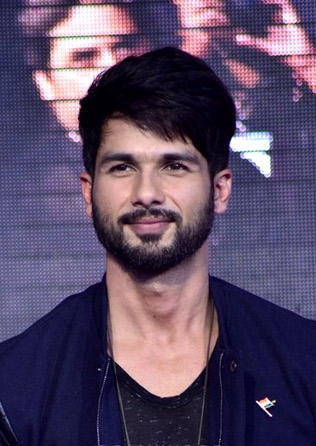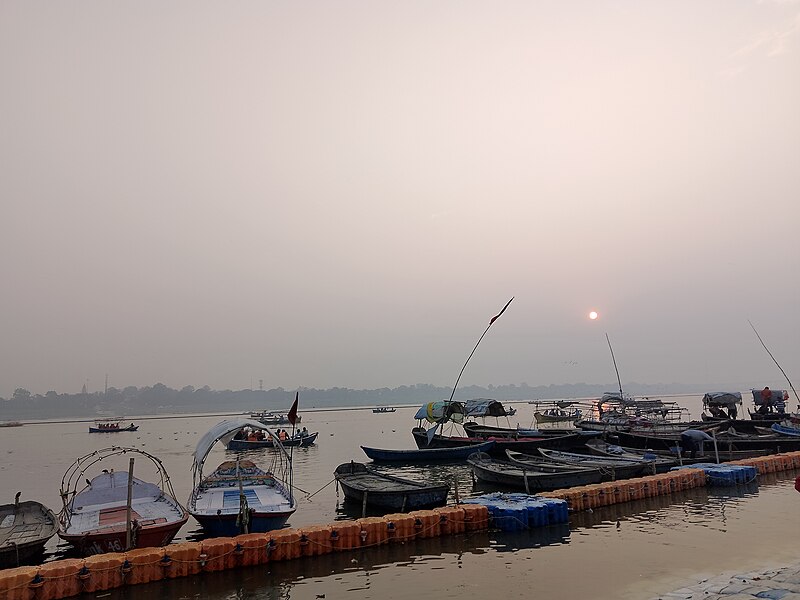Before The Kashmir Files, there was Haider
The Kashmir Files is as bad as Haider because, instead of portraying the Islamization of Kashmir and the reality of azaadi, Agnihotri spreads BJP’s propaganda
Ravi Shanker Kapoor | March 26, 2022 6:21 pm

Shahid Kapoor promoting Haider (Photo courtesy: Wikimedia.org)
Eight years before The Kashmir Files, there was Haider, touted to be “an adaptation of William Shakespeare’s Hamlet.” The claims notwithstanding, it was intended to boost the Left-liberal narrative on the trouble-torn state. Vishal Bhardwaj (director and writer) and Basharat Peer (writer), by depicting the separatists as oppressed freedom fighters in the movie Haider, proved to be the useful idiots of Islamists.
Worse, Bhardwaj and Peer even used and abused Shakespeare and the revolutionary poet Faiz Ahmed Faiz (whose poems add to the backdrop) for the purpose (Vivek Agnihotri of the TKF fame also abused Faiz, as we shall see in another post).
The only good people in Bhardwaj’s movie are Islamists—the protagonist Haider (played by Shahid Kapoor) and his father, Dr. Hilaal Meer. For the former, Anantnag is Islamabad and the Indian Army is a barbarous occupation force, while the latter finds nothing wrong in helping terrorists. And the bad guys are security personnel, who routinely pull out the nails of illegally detained innocent Kashmiris and murder them in cold blood. Besides, there is the dreadful Armed Forces (Special Powers) Act or AFSPA.
This is the Hurriyat narrative, beautified and beatified by Bhardwaj, Peer and Co., and unduly sanctioned by film critics who have generally called it an excellent rendition of Hamlet. Now the problem with film critics is that they are wannabe intellectuals; so they often end up swallowing (mostly without understanding) and then vomiting all the politically correct ideas that they think can make them respectable among parlor pinks.
Haider begins with the arrest of the protagonist Haider’s father. He is guilty of treating a terrorist. Haider (the Indianized Hamlet) is crestfallen, not just because of the arrest and disappearance of his father but also his paternal uncle Khurram’s intimacy with his mother (Ghazala, played by Tabu); eventually, the duo marry, further infuriating Haider.
Meanwhile Haider’s search for his father proves to be futile. While Hamlet was informed about his father’s murder by the latter’s ghost, Haider came to know about the detention, torture, and extrajudicial killing of his father by a mysterious, almost ghostly, terrorist Roohdaar (Irrfan Khan). Roohdaar, a separatist who was incarcerated along with Haider’s father, also tells the son how Khurram (Kay Kay Menon) had betrayed his father. He delivers Hilaal’s message that Haider should shoot Khurram in his eyes.
Hardly Shakespearean
There are a lot many Shakespearean elements in the movie: Haider eschewing from killing Khurram while he is praying, the mousetrap technique, black humor at the graveyard, treachery of two of Haider’s friends, a number of killings, and so on. Yet, it would be misleading to say that Haider is “an adaptation of William Shakespeare’s Hamlet.” The characteristic Hamletian dilemma—‘to be or not to be…’—is missing; the soul is missing; it is Hamlet without the prince of Denmark. At best, Haider has some resemblance with Shakespeare’s Hamlet, nothing more than that, nothing Shakespearean. Certainly not an adaptation of Hamlet.
As Bhardwaj said in an interview to The Indian Express, “In my film, in a way, Kashmir becomes Hamlet.” Now, this is an extraordinary, outlandish twist to the definition of tragedy. According to Encyclopedia Britannica, tragedy is the “branch of drama that treats in a serious and dignified style the sorrowful or terrible events encountered or caused by a heroic individual.” Technically speaking, tragedy is about individuals, not collectivities. ‘To be or not to be…’ is replaced with facetious rhetoric like ‘Hum hain ki naheen hain.’
Further, Bhardwaj overdid the Oedipus Complex thing. The relationship between Haider and Ghazala has a tinge of sexuality in it. Tabu surely does not look or behave like a Nirupa Roy, the archetype of a long-suffering, sacrificing but always virtuous mother that is usually portrayed in Hindi cinema. But there is no such hint of the complex in Hamlet. Yes, Sigmund Freud did talk about it, but I don’t think for three centuries between when Hamlet was played and Freud propounded his sex-oriented theories that anybody made such a claim.
The actors did well, especially Tabu and Shahid Kapoor. The cinematography was good. The main problem was Bhardwaj, for his understanding of Hamlet is as shallow as his understanding of the situation in the country in general and in Kashmir in particular.
Let’s begin with the Indian state’s response to insurgency, uprising, or any other law and order issue. Doesn’t he know how our law enforcement agencies deal with insurgents and criminals? How did the security personnel deal with the Khalistani militants? Were they interrogated using kid gloves? Aren’t there encounters and extrajudicial killings in UP, Bihar, Andhra Pradesh? Are the apprehended Maoists treated in accordance with the norms prevalent in Scandinavian countries? Even petty thieves, or even the poor men suspected of any wrongdoing, are brutally thrashed by the cops. All this is not nice, but this is how it is. After Independence, our political masters should have altered the governance paradigm and drastically reformed the police and justice systems, but they did not. This is unfortunate, but for all of us, not just for the Kashmiris. But by focusing on the treatment meted out to the Kashmiris suspected of aiding terrorists, Bhardwaj has presented a distorted picture; it is like showing an unlovely spot near the Dal Lake and claiming that Kashmir is ugly.
Azaadi is slavery
But the bigger blunder was accepting the Hurriyat interpretation of the Kashmir issue hook, line, and sinker. Bhardwaj, like most liberals who lauded his movie, refused to examine the content of azaadi (freedom) that Hurriyat leaders want. By the way, the word ‘hurriyat’ also means liberty. So, on the face of it, one might be tempted to acknowledge the outfit and their sympathizers as freedom fighters. Besides, postmodern relativist ethics has it that one man’s terrorist is another’s freedom fighter. Ergo, Hurriyat chaps are freedom fighters.
Such a conclusion is the consequence of faulty premises and fallacious syllogisms; and the faulty premises in turn are the result of ignorance. Evidently, Bhardwaj couldn’t see through the smoke-and-screen world of jihad for the simple reason that he lacks the prerequisite erudition and profundity to do that.
When Satyajit Ray makes Shatranj Ke Khilari, he knows not only the craft but also the history, culture, and ethos of India as well as of the West. He depicts the rendezvous between the East and the West in an excellent scene in the earlier part of the movie in which the actor David visits the nobles Sanjeev Kumar and Saeed Jaffrey playing chess. The scene is the crystallization of Ray’s discernment of the rendezvous, a discernment that is the product and function of immense scholarship and contemplation. Bhardwaj simply lacks such erudition and perspicacity. Sunil Gavaskar’s comments on the RBI’s monetary policy and Amartya Sen’s on the intricacies of quantum mechanics would be more substantive Bhardwaj’s take on Kashmir.
So, it was not surprising Bhardwaj was unable to acknowledge the fact that the ultimate objective of Kashmiri separatism is an Islamic state; it has always been. Priyanka Bakaya and Sumeet Bhatti of Stanford University wrote in Kashmir Conflict: A Study of What Led to the Insurgency in Kashmir Valley & Proposed Future Solutions, “In 1980, the Islamization of Kashmir began with full force. The [Sheikh] Abdullah Government changed the names of about 2,500 villages from their original names to new Islamic names. For example, the major city of Anantnag was to be known as Islamabad (same name as the Pakistani Capital).” So, the protagonist in Haider has internalized the jihadist geography.
According to Bakaya and Bhatti, “The exact role of Saudi Arabia cannot be known due to lack of evidence currently, but there are clear indications showing their influence. Many Saudi religious personalities and scholars held an Islamic Conference in Srinagar in 1979 and visited often thereafter. Further, they set up the Jhelum Valley (JV) Medical College in 1980, through which they were able to funnel large sums of foreign exchange money into Kashmir… Anecdotal evidence suggests it was the doctors in this hospital that began spreading the message of radical Islam and communalism.”
Islamization pattern
Kashmiri leaders also spewed venom against the Hindus. The Sheikh began giving communal speeches in mosques as he used to in the 1930s. Further, in his autobiography he referred to Kashmiri Pandits as ‘mukhbir’ or informers of the Indian government, wrote Bakaya and Bhatti.
The Islamization pattern in Kashmir had a familiar trajectory. The Saudi money established facilities such as madrassahs that, according to Bakaya and Bhatti, “trained jihadis in the region. From the early 1980s, madrassahs started spreading throughout the Kashmir Vale, and these institutions planted the seeds of Islamic fundamentalism in Kashmiris from an early age. Children were instructed to ‘fight for Islam,’ and hatred for their Kashmiri Pandit counterparts was bred extensively.”
The denouement was the expulsion of three lakh Pandits from their native place. Ethnic cleansing continued relentlessly; on March 20, 2000, three dozen Sikhs were massacred at Chittisinghpura in the Anantnag district. Ten years later, in August 2010, they received anonymous letters from Islamic militants asking them to either quit the Valley or embrace Islam.
Christians have fared little better. In 2011, a Christian priest was accused of forced conversion in Jammu & Kashmir by the state’s Grand Mufti. Imagine the tempest that would follow if the chief minister of a state ruled by the Bharatiya Janata Party were to appoint a Shankaracharya and seek direction for social and cultural policies. Rank communalism, vile regression, beginning of theocracy, assault on secularism—this is how our liberals would greet the move. They would vehemently campaign for the status quo.
But when it comes to Kashmir, all the great ideas about keeping the state and religion apart are given a silent burial; a conspiracy of silence entrenches itself. For instance, there was a Grand Mufti: Mufti Mohammad Bashiruddin headed the Supreme Court of Islamic Jurisprudence in Kashmir. The mandate was obvious: to implement Shariat, which is the antithesis of all that the Indian Constitution and modernity stand for.
He stopped the world-renowned Bombay-born conductor Zubin Mehta’s music concert scheduled for September 7, 2013, in Srinagar. The Times of India reported on August 27, 2013, “The state government has chosen silence over the mufti’s official status and the legitimacy of his sharia court. But he is seen at most official functions including those attended by chief minister Omar Abdullah.”
The Grand Mufti was no titular figure; he was an activist. He had a court, in which he summoned Pastor C.M. Khanna following allegations of his involvement in forced conversions. Khanna denied the allegations. It was obviously a false charge; it was like accusing a Muslim of forcibly converting Hindus to Islam in Yodi Adityanath’s UP/
The same Grand Mufti forced Pragaash, an all-girl rock group from Kashmir, to be disbanded in February 2013. Typically, he had denounced their music as “un-Islamic.”
Propaganda, not art
So, this is the azaadi the separatists are fighting for—where non-Muslims would be either kicked out or forced to convert to Islam, women would be pressured to follow the diktats of medievalist clerics, music would be banned, and all the abominations associated with an Islamic state would be introduced.
It is a strange, frightening world we live in: theocracy assumes the guise of self-determination and democracy; slavery masquerades as liberty; and liberals do not (refuse to?) even notice the trick.
Worse, liberals like Bhardwaj actually wallow in their ignorance. Using his mastery over the craft of cinema, he just bestows a verisimilitude of veracity and legitimacy to the jihadist narrative.
Agnihotri’s TKF is equally bad because, instead of portraying the Islamization of Kashmir and the reality of azaadi, he focused on spreading the Bharatiya Janata Party’s propaganda.






























